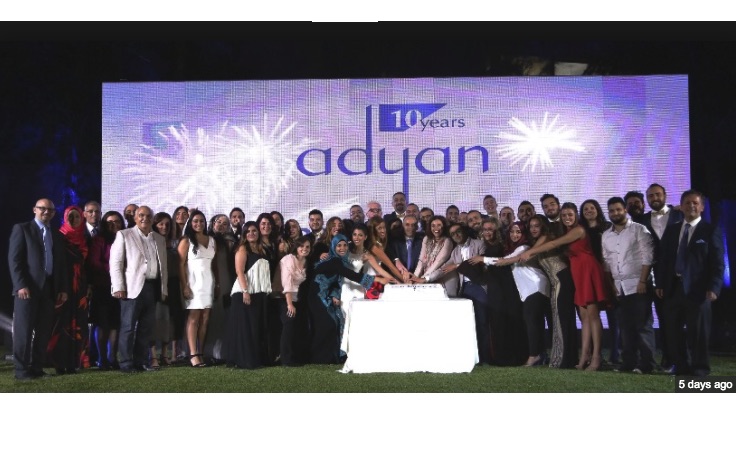EDUCATION FOR PEACE .
An article by Kevin McKenzie for High Ground News (reprinted as non-commercial use)
As thousands of union members and supporters prepared to march in Memphis on the 50th anniversary of Dr. Martin Luther King’s slaying while supporting the city’s sanitation workers, the point of the outpouring became clear.
Lee Saunders, president of the American Federation of State, County and Municipal Employees union still representing those workers today, tied the past to the present.
“Fifty years ago those brave 1,300 sanitation workers, the faith-based community, our community partners, walked together hand-in-hand, singing together, praying together, walking and demanding justice and dignity for those sanitation workers,” Saunders told the marchers. “We will do the same today, sisters and brothers. That same coalition, coming together, fighting the good fight. Are you ready?” he asked.

Teddy McNeal (center) raises his fist during Common’s performance outside the AFSCME Hall. McNeal traveled from Kinston, NC with his Machinists union. (Andrea Morales/MLK50)
Fusing together broad coalitions and movements to harness the power of voting, nonviolent civil disobedience and union organizing were a clear message repeated during three days of conferences, speeches and workshops culminating with Wednesday’s march.
Martin Luther King III echoed those themes during a closing rally in a South Memphis field adjacent to Mason Temple, where King spoke the night before he was slain at the Lorraine Motel, now part of the National Civil Rights Museum.
“We’ve got to find ways to register people like never before,” King said. “And we’ve got to vote in November like never before. Black Lives Matter, Me Too movement and finally the student high school movement to address guns in this country, we should be excited about that,” King said.
Before the march started from AFSCME Local 1733 headquarters, Vermont Sen. Bernie Sanders said called King a nonviolent revolutionary. Honoring his legacy means following his footsteps and transforming the country.
“Dr. King was many, many things,” Sanders said. “What he was mostly about was understanding that we are all of a common humanity — black and white and Latino and Asian American and Native American. We have common dreams and today we tell the president of the United States and anyone else, you are not going to divide us up.”
AFSCME and the Memphis-based Church of God In Christ, headquartered at Mason Temple, partnered to support an I Am 2018 conference and the march.
(article continued in right column)
Question related to this article:
What’s the message to us today from Martin Luther King, Jr.?
(article continued from left column)
Rev. William Barber, co-founder of the Poor People’s Campaign: A National Call for a Moral Revival, which rekindles King’s Poor People’s Campaign by harnessing civil disobedience to target government policies, shuttled between appearances, including the rally, to urge fusion and action.
“You dishonor the movement and dishonor the prophet if you just remember the prophet without having a revival of the movement the prophet stood for,” Barber told the marchers. “I’ve come today to tell you this is not time for a party, it is time for a political revolution.”
AFSCME and other public-sector unions also are preparing for what they fear may be a damaging U.S. Supreme Court case to be decided in coming months, Janus vs. AFSCME, that could cripple their ability to collect fees in some states.
The unions, as well as Democratic candidates they tend to support, would suffer the blow.
Entertainers including Common and Sheila E, who also delivered a speech at the closing rally, performed for the marchers.
CNN cable news political commentator Van Jones introduced speakers at the closing rally. Jones said his father was born in Memphis, went to Melrose High School, and was in Memphis the day King was slain.
“My father said that was the worst day of his life and the worst day in the life of Memphis. I wish he were here today to see the beauty, to see the strength to see the resilience, to see the power,” he said.
Another CNN political commentator, Angela Rye, also spoke, continuing a war of words with Memphis Mayor Jim Strickland.
“Tell him that my facts are straight and here are the facts, Mayor Strickland, because I asked you if this was a Memphis that you are proud of, if you and the way that you are dealing with your workers in 2018, which is far too similar to the way that Mayor Loeb dealt with workers in 1968,” Rye said.
The city paid Rye to be keynote speaker Feb. 24 at an MLK50 event. Rye, who had met with Memphis activists beforehand, spoke critically of issues ranging from progress to policing in Memphis with Strickland sitting nearby.
The mayor told The Commercial Appeal that he didn’t know who Rye was, that she was wrong and out of touch at times, but that it was good to be challenged. He later followed up with a more detailed rebuttal.
Rev. Al Sharpton was among speakers who pointed to the continuing issue of police shootings of unarmed black men, as well as poverty and income inequality.
“We’re shot too much, incarcerated too long, that’s why we march,” Sharpton said.
Tilman Hardy, 41, is with Step Up Louisiana, which pushed for a statewide economic platform that was shot down by a House committee in the state legislature on party lines, with nine white Republicans voting no and three black Democrats voting yes, he said.
“That still shows that our nation is divided and all of these years later it seems like we still haven’t moved the needle as much as we could have. So days like today mean a great deal to America and New Orleans,” said Hardy, helping to hold a banner as he marched.









